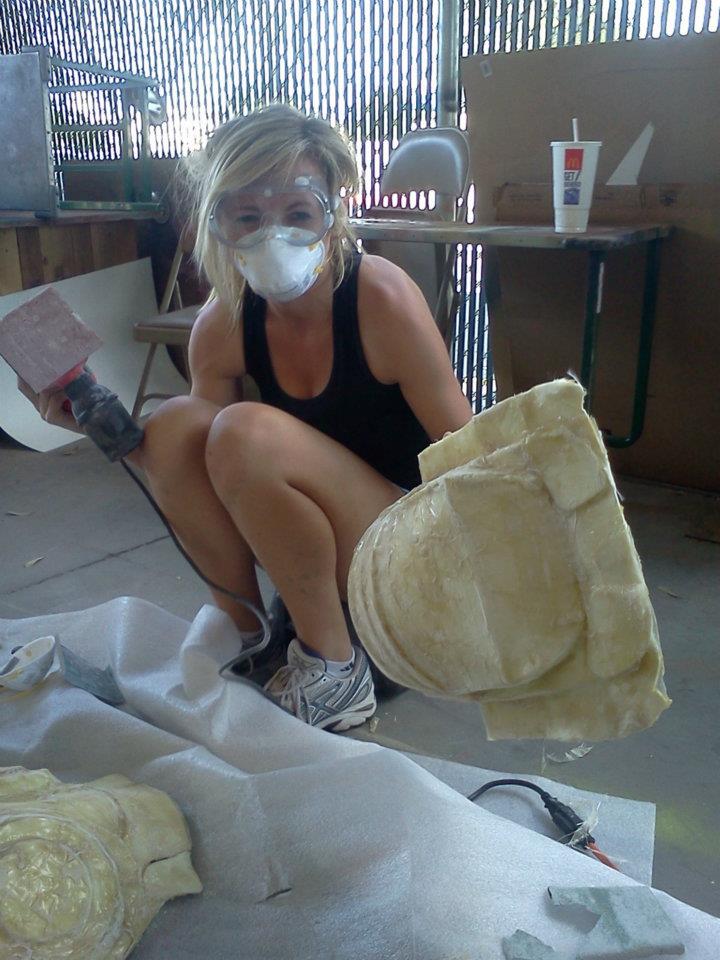|
|
Chaka Cumberbatch guest post - The
pursuit of cosplay fame... |
A few weeks ago, I was scrolling down my
Twitter timeline when I stumbled upon what appeared to be a landmine of tweets
regarding the finalists chosen for the Less Than Three professional gaming and
cosplay group. The tweets fell into two categories – of the congratulatory and
celebratory variety, and of the…well…not so celebratory variety.
I watched as fellow female cosplayers complained about the finalists that had
been selected. Many of the tweets were bemoaning the plight of the “cosplay
underdog,” claiming that the chosen finalists were “already popular,” that they
had “enough fans already,” and alleged that you already had to have a sizeable
cosplay fanbase to garner any recognition within the community.
It got me thinking about the emphasis we as cosplayers have been placing on fan
pages and fan bases within the community. Lately, it feels like we’re starting
to prioritize “fans” and “likes” over such archaic concepts as “passion” and
“craftsmanship.” As cosplay has begun to garner the attention of mainstream
media – landing us on reality shows and in national news coverage – have we
started to approach this hobby more strategically? Are we still cosplaying for
fun, or are we cosplaying for fame? |
 |
On any given day, my Facebook newsfeed is
typically a technicolor smorgasbord of cosplay fan page posts, mostly because I
enjoy supporting my friends and following cosplayers whose work I admire. On one
hand, I think the influx of fan pages on Facebook – brought on in part by the
mass deletion of cosplay profiles last year – can be a good thing. It allows us
to exchange information with people we meet at cons and gives us a safe, easy
way to keep up with each other. Full disclosure: I have a cosplay page myself,
and I love sharing pictures, links and talking about all sorts of things –
Related or not – with the people who choose to follow my page. |
But on the other hand, I think in a lot of
ways, the marriage of cosplay and social media has turned our hobby into more of
a popularity contest than ever before. Now, cosplayers solicit and compete for
likes. There’s more significance placed on physical sex appeal and on glamorous,
heavily edited images. The higher the fan count on their page, the more talented
the cosplayer is perceived to be. Cosplay Photographers are starting to become
highly sought after rock stars in their own regard – which, considering all the
work they do, is well deserved – but in many cases, they’re treated as nothing
more than a stepping stone for exposure. Recently, many of my photographer
friends have struggled with the fact that some cosplayers don’t even give them
credit when sharing the pictures they took.
Yaya Han recently touched on the effect social media has had on the cosplay
community in a series of tweets. “Social Media has made cosplay more about
surface glam,” Han tweeted. “It’s easier to hide your flaws and show off your
good side.”
“It’s brought cosplayers around the world closer,” she went on to tweet. “But we
are no longer measured by our costumes, but by our page likes.” Truth be told,
when my own page’s fan count was in the below 500 range, it was oftentimes
difficult for me to be taken seriously within the community – by both cosplayers
and photographers alike. Is there something I’m missing? Do fan page numbers
really mean that much? In a community filled with people who share a hobby that
is still pretty heavily side-eyed by society in general, why do we treat people
differently based on how popular we think they are? |
If someone is considered too popular, we
call their devotion to their fandoms, their costume work, even aspects of their
physical anatomy into question. She got here by being pretty, we say. She’s not
deserving of her success. I am forever blown away by the fact that Jessica Nigri
had to post pictures of herself holding power tools, in the process of working
on her costumes on her page in an attempt to get people to stop saying she
doesn’t do her own work. She shouldn’t have to do that. None of us should.
But on the other hand, if someone
isn’t considered popular enough, we dismiss them. One of my new favorite
cosplayers has about 200 fans on her page, tops. Yet, her work is incredible –
and doesn’t need thousands of people to like her page to prove it. |

Jessica Nigri working on her Gears of War cosplay outfit. |
|
Another one of my favorites doesn’t
have a social media presence at all, beyond a personal Facebook profile for
friends. She’s phenomenally talented and I would kill for even a fraction of her
skill – but she doesn’t have a fan page. Does that mean she’s not legit? Is she
unworthy of your time because she doesn’t have thousands of people following a
Facebook page? |
Don’t get me wrong – networking within the
community is fine. I do it myself. Developing your own personal cosplay “brand”
is fine. I do it myself. There’s no denying that the somewhat newfound interest
by the mainstream media in our hobby means that if you position yourself
correctly, you can find yourself on the receiving end of some pretty sweet
opportunities – we might as well be upfront about that. But there’s definitely a
divisive line being drawn between cosplayers who are considered “popular” (which
oftentimes leads people to believe they aren’t deserving of their ‘fame,’ which
is another post entirely) and cosplayers who are not. And we’re pitting
ourselves against each other, when we really shouldn’t be.
“I think it’s important to mention why I even have a cosplay page,” Cosplayer
Marie Grey wrote on her fan page recently. “I’m not here to generate likes and
become ‘cosplay famous.’ I’m here to share my work with others, teach those who
seek my help, and learn from those who came before me.”
Mad respect for this girl. I think she’s got the right idea. |
|
Article by
Chaka
Cumberbatch
from www.nerdcaliber.com |
|
Thank you so much for allowing us to repost this article for our
audience. |
|
|
|
| |